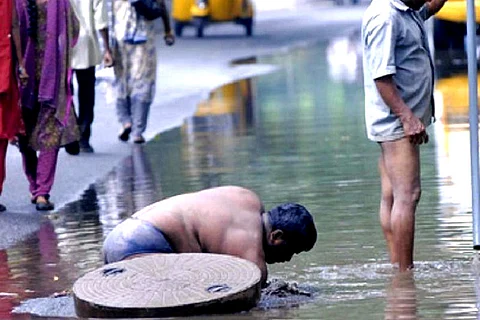

The National Human Rights Commission (NHRC) has issued notices to the Chief Secretary of Delhi and the District Magistrates of Darbhanga (Bihar), Kozhikode (Kerala), Cuttack (Odisha), and Tiruvallur (Tamil Nadu) on December 8, demanding answers following the continued deaths of laborers during sewage cleaning and manual scavenging. The NHRC has sought an Action Taken Reports (ATR) within six weeks.
"It is a matter of serious concern that the state authorities are unable to prevent deaths on account of sewage cleaning/ manual scavenging despite the directions issued by the Supreme Court and the Advisory issued by this Commission on the matter," observed the NHRC.
The move comes after a petition filed by rights activist and advocate Radhakanta Tripathy brought the issue to the NHRC's attention. Tripathy highlighted the recent deaths of sanitation workers in Delhi, Bihar, Odisha, Tamil Nadu, Kerala, and other states, citing data from the central government revealing 453 deaths since 2014. This statistic is particularly alarming given that 732 of India's 766 districts have declared themselves free from manual scavenging.
The NHRC expressed serious concern over the state authorities' inability to prevent these deaths, despite Supreme Court directives and the NHRC's own advisory. The NHRC also directed the Secretary of the Ministry of Social Justice and Empowerment to take necessary measures to prevent future tragedies.
Tripathy pointed out that these deaths are not only a violation of human rights and Supreme Court orders but also a clearcut violation of the Prevention of Atrocities Act, as the victims are predominantly from the Dalit community. He called the situation an ongoing human rights crisis in India and stressed the need for robust policies to address the issue.
Tripathy stated that the absence of robust policies reflects a broader societal indifference towards issues affecting the marginalized communities in India. The NHRC has requested the authorities to provide details on the steps taken to rehabilitate the families of the deceased and to implement effective action plans to prevent similar incidents in the future.